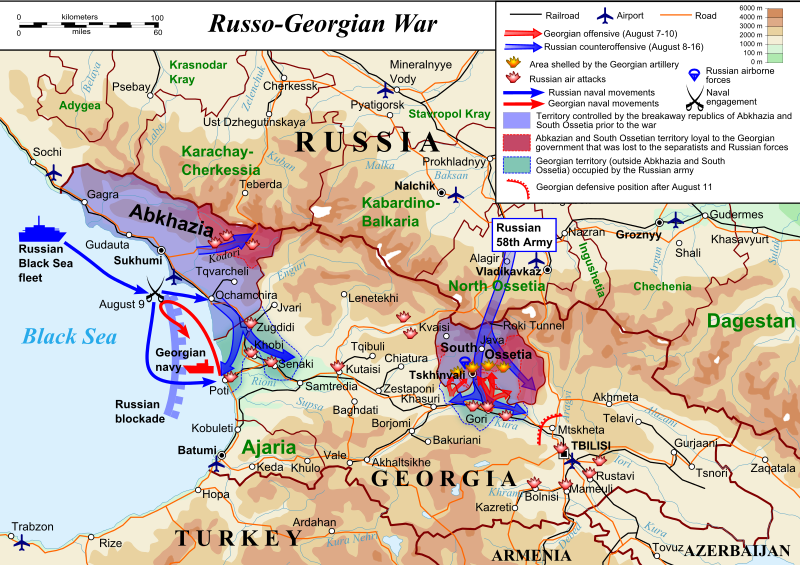Almost immediately following the creation of the State of Georgia, the province, (Oblast) of South Ossetia declared its independence from Georgia, wishing to either be an independent state, or return to being part of the Russian Federation. Georgia did not recognise the independence of South Ossetia and went to war with the province for nearly a year and a half between 1991 and 1992. The war ended with a majority of the province surviving under a de-facto Russian supported government. A similar war took place with the Abkhazia Oblast throughout 1992 and 1993 which only made matters more intense.
Other than the odd skirmish, the conflict laided dormant until 2008 when separatist talks were heard from both South Ossetia and Abkhazia, and Georgia threatened military intervention should either province attempt to leave. The Russian Federation saw this as a threat to their military strategy in the Black Sea, and officially decided to defend South Ossetia and Abhazia from a potential Georgian attack.
 |
| CC 3.0 |
The Georgian assault forced the Russian peacekeepers to defend themselves with the support of the Ossetian militia. This led to the Russian Federation to view the assault as an assault on their sovereignty, and the rights of South Ossetians to cede Georgia and join Russia. Within hours of the first attacks, Russia deployed its 58th Army and its Airborne troops claiming humanitarian intervention and peace enforcement.
On August 9, Russian marines landed in Abkhazia and with the support of the local Militia opened a second front against the Georgian army. The Georgian navy was defeated in a naval skirmish earlier in the operation. Georgian forced began to retreat, and Russian forced easily occupied a number of Georgian port cities.
On August 12, a ceasefire agreement was put forward by the French president, and the European Union. Georgia signed the agreement on August 15, and Russia on August 16. Russian troops created a buffer zone around Abkhazia and South Ossetia, as well as recognising the governments of both provinces as independent nations. Recognition also came from Venezuela, Nicaragua, and the south Pacific Island nations of Nauru, Tuvalu, and Vanuatu. Belarus was in the process of recognising South Ossetia, when it was urged to refrain for such action by the European Union.
Remembering History - The 2008 South Ossetia War, a.k.a The Russo-Georgian War
No comments:
Post a Comment